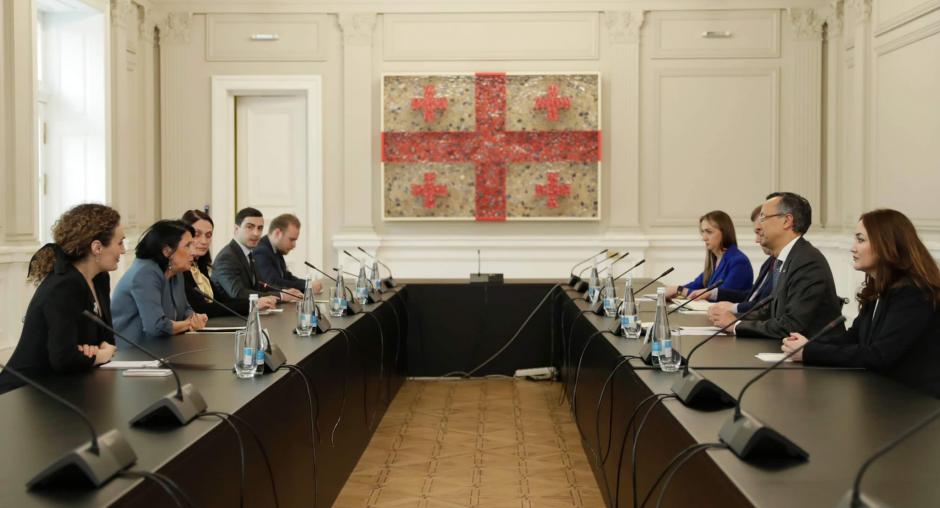OSCE High Commissioner on National Minorities supports Georgia’s efforts to manage diversity and increase opportunities for all

OSCE High Commissioner on National Minorities Kairat Abdrakhmanov has expressed his support for Georgia’s efforts to increase opportunities for all, including national minorities, during his visit to the country between 11 and 16 April 2022.
Abdrakhmanov commended Georgia’s new State Strategy for Civic Equality and Integration (2021-2030). In his meeting with State Minister for Reconciliation and Civic Integration Tea Akhvlediani, the High Commissioner reaffirmed the readiness of his office to continue supporting the implementation of the State Strategy to increase socio-economic and political participation opportunities for national minorities, and offered to share his institution’s expertise on diversity governance, including through programmatic and thematic work.
He also was briefed on the review of the “1+4 programme”, which provides State language learning opportunities for national minorities to be able to study at university level.
The High Commissioner took the opportunity to congratulate Georgia on Mother Language Day on 14 April. He praised the authorities’ commitment to maintaining a balance between promoting state language proficiency while preserving mother-tongue education, and said this approach is central to the programmatic work of his institution in the OSCE region.
He also noted the Government’s engagement with youth and women, and welcomed efforts to increase the participation of national minorities in political and public life.
“In these especially challenging times in the OSCE region, I have confidence in Georgia’s ability to demonstrate leadership and commitment to upholding the values and principles of the OSCE, especially concerning my mandate,” said Abdrakhmanov.
The High Commissioner also visited the Kvemo Kartli region, which has a significant ethnic Azeri population. He met key interlocutors in the city of Marneuli and visited a public school in Nakhiduri, Bolnisi. At the school, he had the opportunity to talk with the principal and teachers about the importance of balancing state language proficiency and mother-tongue education, which can be best achieved through multilingual and multicultural education. He also visited the administrative boundary line in Odzisi.
In Tbilisi, Abdrakhmanov met President Salome Zourabichvili, Prime Minister Irakli Gharibashvili, Minister of Education and Science Mikheil Chkhenkeli, First Deputy Minister of Foreign Affairs Lasha Darsalia, Deputy Minister of Internal Affairs Aleksandre Darakhvelidze, Head of the State Agency for Religious Issues Zaza Vashakmadze, and Head of the State Language Department Giorgi Alibagashvili. He also met the Deputy Speaker of Parliament Archil Talakvadze, Chairs of the Parliamentary Committees on Human Rights and Civil Integration, and on Education and Science, and other key members of parliament, as well as representatives of the Council of National Minorities and civil society organizations involved in promoting national minority interests.
The High Commissioner also met representatives of the international community in Georgia, including the UN Resident Coordinator Sabine Machl and members of the UN country team, Head of the Council of Europe office in Georgia Natalia Voutova, Head of the EU Delegation to Georgia Carl Hartzell, and Ambassadors of OSCE participating States. They discussed the need to strengthen their mutual co-operation and co-ordination to achieve the Sustainable Development Goals and maintain peace and security in the country and the wider South Caucasus region.